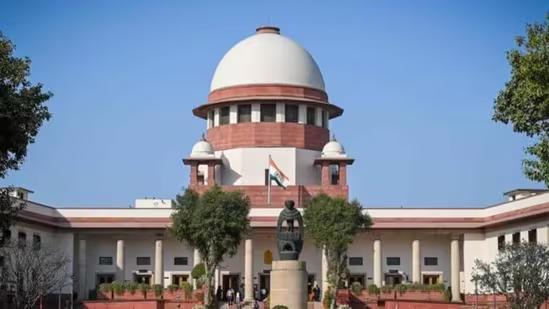
Court can’t grant assent to bills, only Guv & Prez can: Maha to SC
In a significant development, the Maharashtra government has argued in the Supreme Court that courts cannot accord assent to bills and only the Governor and President of India have the power to do so. This statement was made by senior advocate Harish Salve, who was representing the Maharashtra government during a hearing on a presidential reference related to the power of the Governor and President to deal with bills passed by state Assemblies.
The presidential reference was filed by the Union government, seeking the Supreme Court’s guidance on whether the court could impose timelines for the Governor and President to deal with bills passed by state Assemblies. The reference was made in the context of the Maharashtra government’s decision to pass a bill to extend the term of the state’s legislative council, which was challenged by the Opposition parties.
During the hearing, Salve argued that the power to accord assent to bills lies with the Governor and President, and not with the courts. He emphasized that the Constitution has clearly defined the role of the Governor and President in the legislative process, and that they have the power to either give their assent to a bill or withhold it.
Salve also pointed out that the courts cannot interfere with the exercise of this power by the Governor and President, and that any attempt to do so would be unconstitutional. He argued that the courts’ role is limited to judicial review, and that they cannot impose their own timelines or deadlines on the Governor and President.
The Maharashtra government’s argument is based on the principle of separation of powers, which is enshrined in the Indian Constitution. According to this principle, the legislative, executive, and judicial branches of government are separate and independent, and each branch has its own powers and responsibilities.
In the context of the legislative process, the Governor and President have the power to give assent to bills passed by the state Assemblies, while the courts have the power to judicially review the constitutionality of those bills. However, the courts do not have the power to accord assent to bills or to impose their own timelines on the Governor and President.
The Maharashtra government’s argument is supported by the Constitution, which gives the Governor and President the power to give assent to bills passed by the state Assemblies. Article 111 of the Constitution provides that a bill passed by both Houses of the state Assembly shall be presented to the Governor, who shall give his assent to it or withhold it.
In addition, Article 74 of the Constitution provides that the President shall give his assent to bills passed by both Houses of Parliament, and that he may withhold his assent or return a bill to Parliament for reconsideration. These provisions clearly establish the power of the Governor and President to accord assent to bills, and the courts’ limited role in the legislative process.
The Maharashtra government’s argument has significant implications for the power of the courts in the legislative process. If the courts are allowed to impose their own timelines on the Governor and President, it could lead to a situation where the courts are effectively dictating the legislative agenda of the state Assemblies, which would be unconstitutional.
Therefore, it is crucial that the Supreme Court upholds the principle of separation of powers and recognizes the limited role of the courts in the legislative process. The court must also respect the power of the Governor and President to accord assent to bills, and refrain from imposing their own timelines or deadlines on them.
In conclusion, the Maharashtra government’s argument that courts cannot accord assent to bills and only the Governor and President have that power is well-founded in the Constitution. The courts’ role is limited to judicial review, and they must not interfere with the exercise of the power of the Governor and President. The Supreme Court must uphold the principle of separation of powers and respect the power of the Governor and President to accord assent to bills.






